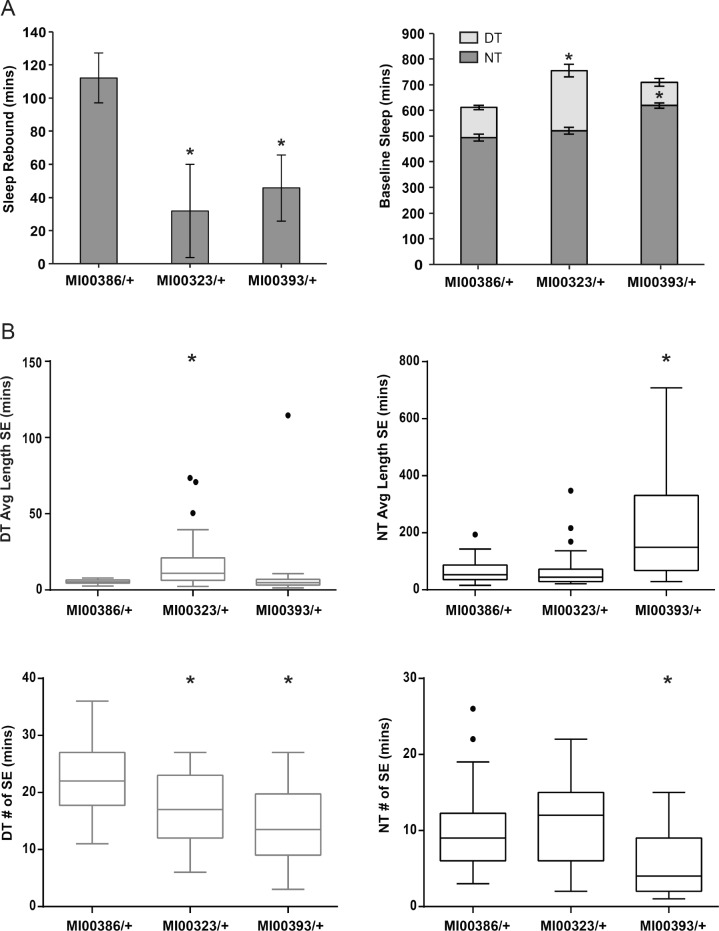Figure 3.
Baseline sleep is not reduced in lines with reduced rebound. (A) Sleep rebound following thermogenetic sleep deprivation and baseline sleep amount (± standard error of the mean) and (B) sleep episode data for a representative experiment are shown for MI00323/+ and MI00393/+ (lines with reduced rebound) compared to MI00386/+, which had an average amount of rebound sleep following sleep deprivation in the primary screen. For MI00323/+, rebound was significantly reduced in four of four experiments with n = 28–32 per genotype. Increase in baseline daytime (DT) sleep episode (SE) length was significant in five of seven experiments, and increase in baseline DT sleep amount, and decrease in baseline DT SE number were significant in four of seven experiments. For MI00393/+, rebound was significantly reduced in three of three experiments. Increase in baseline nighttime (NT) SE length and decrease in baseline NT SE number was significant in four of six experiments, and increase in baseline NT sleep amount and decrease in baseline DT sleep amount (not significant in the representative experiment shown) were significant in three of six experiments. Significance for sleep rebound and sleep amount data was assessed with Welch t-test, P < 0.05. Significance for sleep episode data was assessed with Wilcoxon rank-sum test, P < 0.05. n = 28–32 per genotype in each experiment.

